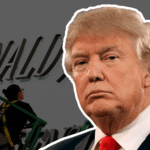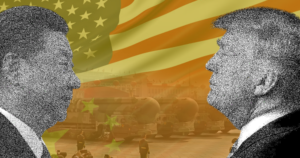by: The Washington Eye
In a move that sharpens the intersection between digital life and geopolitical gatekeeping, the U.S. Embassy in India has announced that all applicants for F, M, or J non-immigrant visas—including students and exchange visitors—must ensure their social media accounts are publicly visible before attending their visa interviews. Though framed as a routine vetting enhancement, this shift reflects a growing global trend: the transformation of social media from a personal outlet into a tool for border control.
Digital Identity as Border Infrastructure
In recent years, governments have increasingly turned to social media as an unofficial extension of their border apparatus. The United States began requesting social media identifiers from visa applicants in 2019, but the new directive escalates this protocol by requiring public access to those accounts. The goal, according to U.S. officials, is to allow consular officers to verify identity and detect any perceived threats based on content, affiliations, or ideological expression.
This evolution is not merely administrative—it is philosophical. National borders are no longer guarded only by passports and biometric data, but by the narratives and signals encoded in online lives. What an applicant posts, likes, or comments on can now shape their ability to cross borders. This represents a profound shift in how governments conceptualize security and identity in an age of digital transparency.
Surveillance, Speech, and the Cost of Visibility
The implications for applicants are not limited to logistical hurdles. This policy introduces a clear tension between transparency and personal freedom. Students and exchange visitors—many of whom are politically active or engaged in global conversations—are now forced to weigh the consequences of their online expression against their hopes of international mobility.
By compelling public visibility, the U.S. is effectively flattening the distinction between public speech and personal browsing. Posts that are satirical, political, or critical—particularly in areas like U.S. foreign policy or global human rights—may be scrutinized not in their intended context, but through the lens of national security. For many, especially those from politically volatile or socially repressive regions, this opens the door to self-censorship and diminishes the internet as a space of free discourse.
Passports in the Platform Age
This policy also underscores how access to education and international exchange—long symbols of soft power and global diplomacy—are becoming increasingly conditional on digital conformity. In 2023–24, over 330,000 Indian students were enrolled in U.S. institutions, making India the largest source of international students in the U.S. The new visibility requirement arrives at a time when students are preparing for fall admissions, turning routine social media posts into potential gatekeepers of opportunity.
More broadly, it highlights the growing power asymmetry between states and individuals in the age of data. A visa applicant’s curated digital footprint becomes not only a résumé but a risk profile. The burden to prove innocence—or ideological neutrality—is placed squarely on the individual, even before any in-person engagement with the U.S. immigration system.
A Final Note: The Border Is Now Also Online
By making social media visibility a prerequisite for entry, the U.S. is formalizing what has long been informally true: our online lives are now subject to the same scrutiny as our documents and fingerprints. This development sits at the crossroads of surveillance, migration policy, and global inequality—where the politics of borders increasingly bleed into the politics of platforms. For international students, the implications are clear: in the pursuit of knowledge, even self-expression must now pass through a national security filter.

The Washington Eye













